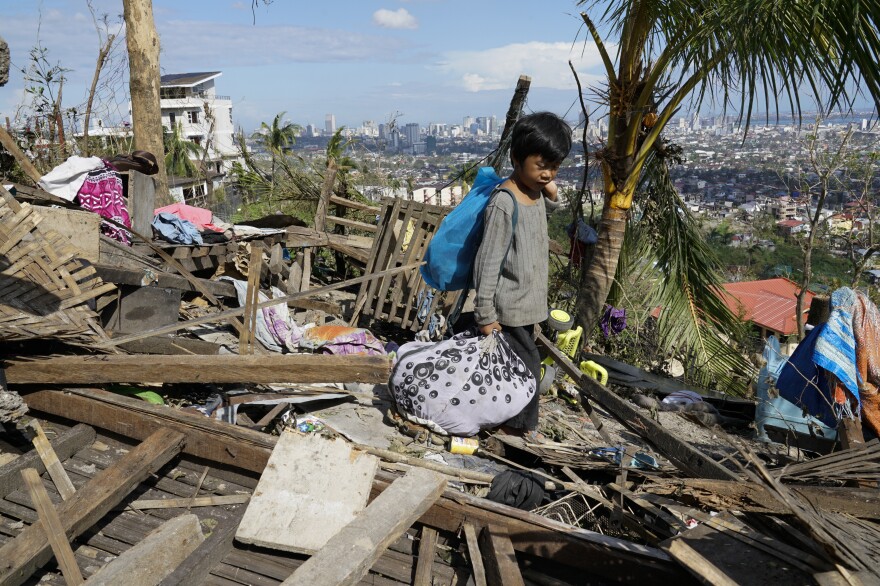Updated December 21, 2021 at 1:29 PM ET
Authorities in the Philippine islands raked by Super Typhoon Rai late last week warn that residents are growing increasingly desperate without food and water, and urge that declarations of "calamity" be ordered in the worst hit areas.
In a televised briefing Tuesday night, President Rodrigo Duterte signed a declaration putting six regions under a "state of calamity," which activates a freeze on prices, among other measures.
Meanwhile, the death toll from the storm that tore through southern and central Philippines stands at 375 with 56 people missing, according to data compiled by the National Police. The count, subject to verification, outstrips the 156 deaths recorded by the national disaster agency.

Rai is one of the most powerful storms to hit the southern Philippines on record. Within 24 hours, the typhoon intensified into the equivalent of a Category 5 hurricane, with sustained winds of some 100 miles per hour in a band 600 miles across. By the time it exited the Philippines Saturday, the storm had displaced more than 481,000 people, according to the Philippines Disaster Risk Reduction and Management Council.
Among them is Niel Jon Salcedo, a young dentist in Cagayan de Oro on Mindanao. He took a moment to savor a family treasure as flood waters lapped in his home.

In a video on Facebook, he stood in knee-high water as he began to play the piano that his parents had given him when he was five.
In a Facebook message, Salcedo told NPR that he had transferred his personal effects to the second floor, but could not salvage the heavy piano. So Salcedo said, "I decided to play ... this might be the last time I can."

Widespread flooding and gale-force winds affected hundreds of thousands of people already battered by the COVID-19 pandemic. Gov. Bingo Matugas of Siargao, where Rai first made landfall, told CNN Philippines that the island is "totally devastated."
A video circulating on social media showed the storm's ferocious winds peeling the roof off of the newly inaugurated Siargao Sports Complex, while a crowd of evacuees screamed in panic.
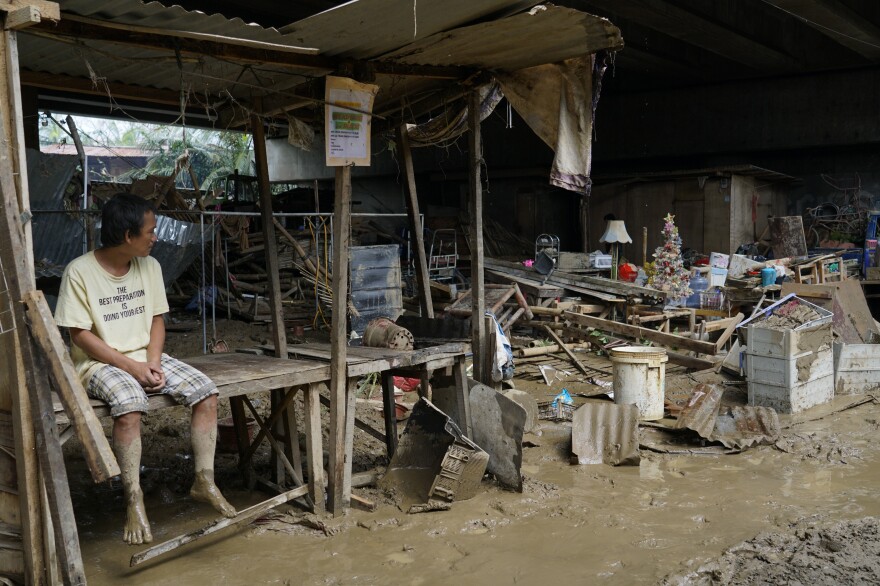


Local media report that residents painted "SOS" on a road in the island's tourist town of General Luna, as people struggled to find water and food. Before Rai struck, Siargao was fast becoming a go-to tourist destination in the Philippines and surfers and holidaymakers had flocked to the island ahead of Christmas.
The diving Mecca of Bohol is one of the hardest-hit islands. Gov. Arthur Yap said on Facebook that at least 94 people have died.

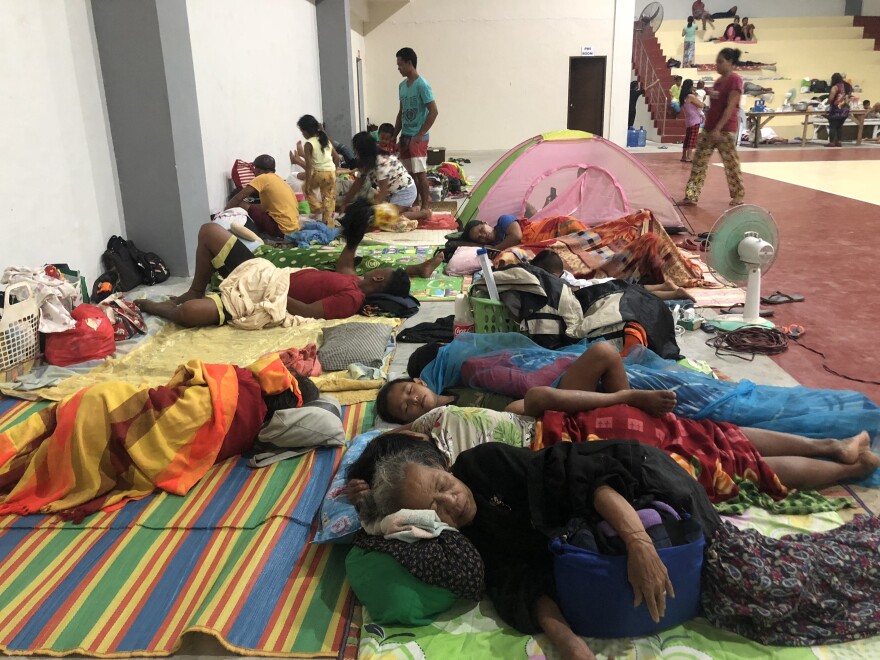
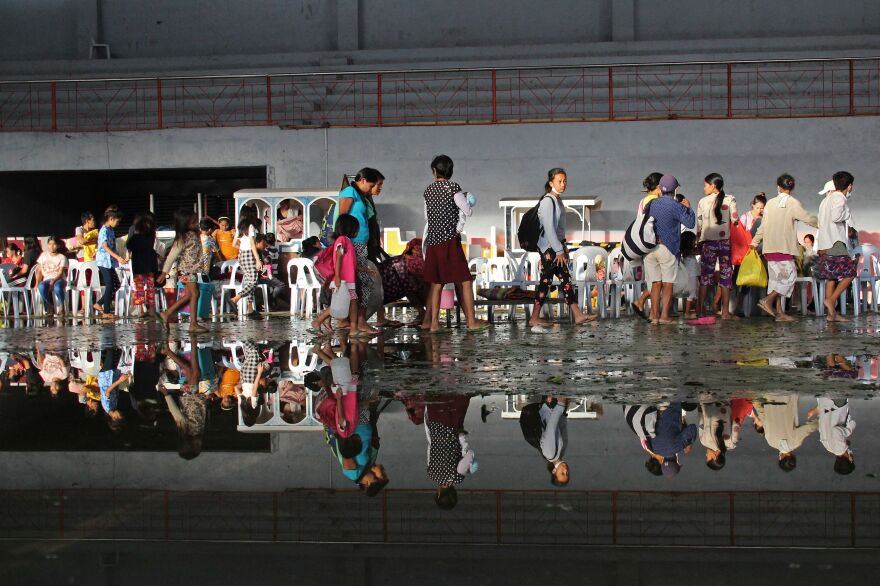

In the Bohol coastal town of Ubay, houses have been flattened, fishing boats destroyed, and a state of calamity declared.
The storm known locally as "Odette" has drawn comparisons to Typhoon Haiyan, which flattened whole communities when it struck the Philippines in 2013, leaving more than 6,000 people dead.
Seventy-two hours after Typhoon Rai struck, the full effects were becoming clear. "Red Cross emergency teams are reporting complete carnage in the coastal areas. Homes, hospitals, school and community buildings have been ripped to shreds," said Philippine Red Cross Chairman Sen. Richard Gordon. He said Red Cross volunteers are providing "urgent relief for people who have lost everything, including ... somewhere safe to shelter."
The International Federation of Red Cross and Red Crescent Societies has launched an emergency appeal for nearly $22 million to finance relief and recovery efforts. Foreign governments including the U.S., UK, Japan and China have lined up to pledge assistance.
But recovery efforts have been slow. Over 200 municipalities remain without power, and many Filipinos are homeless. The Philippine Department of Social Welfare and Development reported over 53,00 houses have been destroyed and another 83,000 partially damaged.

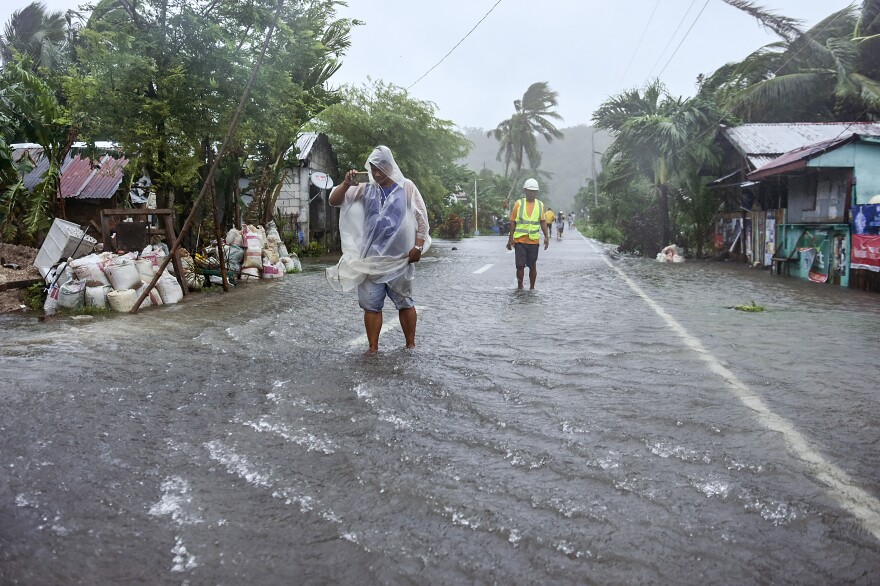

The country's disaster agency said $3.2 million in crops, livestock and machinery have been lost.
Touring the devastation this weekend, President Duterte acknowledged that the storm's intensity had caught government agencies off guard. "No one expected it to be this strong," he said, and asked for the public's patience.
The pandemic, he said, had depleted the budget, but he said that new funds will be available at the start of the year. Duterte pledged immediate aid of 2 billion pesos, about $40 million, to hard-hit areas, but conceded it would not cover the total cost of havoc the storm has wreaked on people's lives and livelihoods.
On Tuesday, however, Duterte upped that amount and pledged to raise an additional 10 billion pesos, or $200 million, for disaster cleanup.
Scientists have warned that typhoons are becoming more powerful and strengthening more rapidly as the world's climate warms. The Philippines ranks among the most vulnerable countries to the impacts of climate change and is hit by an average of 20 storms, some ruinous, every year.
Copyright 2023 NPR. To see more, visit https://www.npr.org.


